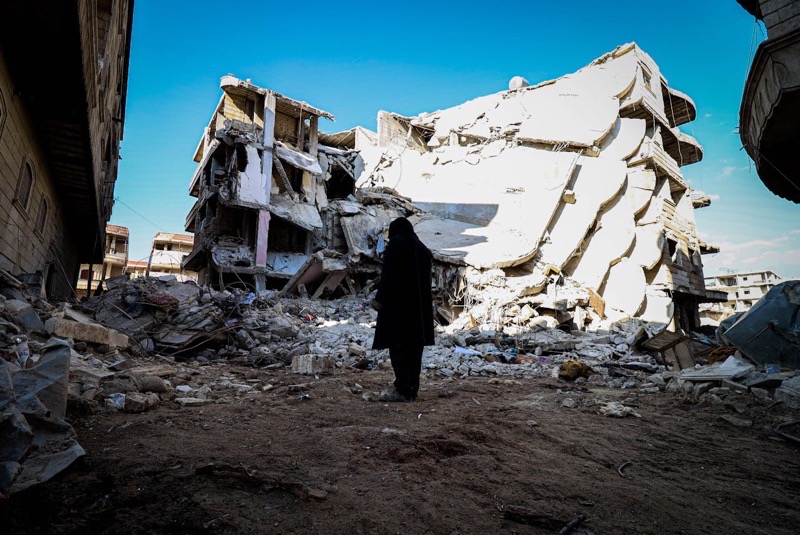The two wars the world is witnessing today have something in common: they are wars of choice that could have been avoided if political leaders had given diplomacy a chance to resolve the underlying issues.
The Russia-Ukraine War
On 24 February 2024, four Western leaders—Prime Ministers of Canada, Belgium and Italy, and the President of the European Commission—together with President Zelensky gathered at the Memory Wall of Fallen Defenders of Ukraine. It was the second anniversary of this war of choice, and the mood was sombre, unlike the previous year when there was much talk of Ukraine’s ‘invincibility’ as Zelensky put it, ardently agreed to by his supporters in Washington, Brussels, and other capitals in the West.
The reason for the change of mood is apparent. Within Ukraine, men are refusing to join the military, mainly because of the growing war-weariness. President Zelensky dismissed General Valerii Zaluzhnyi on 9 February 2024, weeks after the differences between the two were aired in the media. Zaluzhnyi was the commander-in-chief of Ukraine’s armed forces. Was Zelensky trying to find a scapegoat for the major military debacle in 2023?
A contagious variety of ‘Ukraine fatigue’ can be seen in the U.S. and the European Union. Washington and Brussels have poured in $100 billion till now. Ukraine needs more. A package of $61 billion is stuck in Washington. The Senate passed it, but whether and when the House of Representatives will pass it is unknown. Former President Trump, eager to return to the White House, has claimed that he would settle the Ukraine matter ‘within 24 hours’ if he returns to office. Many Republicans in the House fear attracting his ire by supporting the package eagerly promoted by Biden.
The E.U. cleared a package of $54 billion to be disbursed until 2027 after Hungary reluctantly gave its node. The European Union Parliamentary elections are due in June 2024, and the far-right is seeking votes to end E.U.’s support for an unwinnable war.
The mood in Moscow is much different than in Kyiv. In an interview with U.S. journalist Tucker Carlson, Putin claimed on 9 February 2024 that his country’s ‘defeat’ was ‘impossible.’ Of course, one can say that it was bravado, not untypical of political leaders. On reflection, it is difficult not to conclude that Putin might be right.
When the war started in February 2022, President Biden’s plan was to destabilise Russia by damaging its economy through sanctions. Biden might have calculated that the sanctions and diplomatic isolation might unseat Putin and even start the break-up of the largest country as resentment against Putin builds up and explodes. Biden’s plans seem to have gone awry.
Germany is the biggest contributor after the U.S. Three days after Russia invaded Ukraine, Chancellor Olaf Scholz announced a major policy change known as Zeitenwende (times-turn) by sharply hiking up the defence budget. Germany would exceed the 2% of the GDP. He announced an ‘extraordinary fund’ of $100 billion to modernise Germany’s armed forces. He got resounding applause in the West. He was certain that Russia would have to concede defeat sooner or later. That speech was delivered on 27 February 2022.
The state of the German economy deteriorated considerably after the start of the war. It is in recession. The nineteenth-century phrase–’the sick man of Europe’–applied to the Ottoman Empire is being applied to Germany. However, this epithet has been used in the 1990s, too. It is to be seen how far the stagnant or declining economy will impact the policy of support for Ukraine.
Europe has come to realise that its arms production capabilities cannot be revived in an instant. Ukraine, running short of shells, asked the E.U. to supply the same. E.U. promised to supply a million by the end of March 2024. The E.U. has now officially stated that it will run short by 50 per cent.
Russia’s economy did shrink sharply in the immediate aftermath of the invasion, and for a while, it looked as though Biden’s prediction of the Rouble becoming the rubble made in Davos in March 2022 might prove to be true. However, Putin has turned around the economy. As of now, Russia’s economy will outpace, in the rate of growth, the US, Germany, France, and the U.K. economies.
The West imposed a cap of $60 a barrel on oil from Russia, calculating that Russia’s export earnings would fall by $36 billion. The plan has not worked, and for the last six months, Russia has been selling oil at $70 to 80 a barrel.
The West has endeavoured to cause a divide between Russia and China without any success. We do not know whether China, fearing sanctions, would have transferred any arms to Russia. It is clear that the two countries have got even closer as China fears that once Russia is beaten, the West will target it.
Despite warnings from the West, both Iran and North Korea have supplied weapons to Russia.
The Israel-Palestine War
Many in the media have consistently made two mistakes about this war. One mistake is to hold that it started on 7 October 2023. And the other is to term it as “Israel- Hamas’ war.”
Those who argue that Hamas sent its militants across the border to kill and capture whomever they could find and conclude that Hamas carried out a terrorist act seldom ask the more basic question: Why did Hamas resort to terrorism? Did they have other means to fight the occupier who was indulging in the worst form of Apartheid with impunity?
The ardent apologists for Israel often fail to recall that Prime Minister Netanyahu had brandished a map of Israel that includes the West Bank and Gaza on 22 September 2023 as part of his speech at the U.N. General Assembly.
Prodded by President Biden, whose Administration till then ignored the Palestinian Question, Saudi Arabia was moving towards normalisation of relations with Israel.
Hamas concluded that it had to act, and there was no other way it could have acted. This isn’t said in justification of what Hamas did. The intent is to draw attention to the big picture, enabling us to understand what happened and why.
Mere condemnation of Hamas as terrorists and extending support to Israel in full measure, as President Biden did, shows a lack of understanding.
We still do not know enough about what happened on 7 October 2023. The Israeli government and a good part of the Western media have proliferated false narratives. ‘I never really thought that I would see and would have confirmed pictures of terrorists beheading children,’ said Biden while speaking to Jewish community leaders on 11 October 2023. Earlier, Netanyahu’s spokesperson had asserted that beheadings of babies had taken place.
However, the Israeli military refused to confirm the veracity of such reports. Asked to clarify whether Biden had seen the photographs, the White House officials had to say that he had not. Obviously, Biden is vulnerable to Israel’s variety of Goebbels’ propaganda.
Another underreported matter is that out of the 1200 reportedly killed by Hamas on 7 October, a few hundred were killed by Israel military’s Apache helicopters that fired indiscriminately.
Netanyahu ordered retaliation, and the grim toll, still counting, is 29,692 killed and 69,879 injured, according to the Gaza Health Ministry. Netanyahu has announced plans to start a ground assault on Rafah by Ramadan (roughly 10 March) if Hamas does not unconditionally release the hostages, about 130.
Netanyahu claims that he has asked the military to work out a plan to relocate the more than 1 million Gazans in Rafah. One wonders whether he is being sententious as it is impossible to arrange for such relocation given the ground situation as Israel has bombed out residential buildings, schools, churches, mosques, UNWRA camps, and even hospitals.
Biden finds himself between Scylla and Charybdis, lacking the skills of Odysseus to escape ruin. His repeated pleas to Netanyahu not to send in the military to Gaza were rejected by Netanyahu, who went on receiving arms from the Pentagon, which supplied bombs, 1000-tons and even 2000-tons, to Israel, whereas Ukraine got only 500-ton bombs. By repeating ad nauseum that Israel had the right to defend itself, Biden justified Israel’s continued and brazen violation of International Humanitarian Law.
President Biden has voiced support for the so-called ‘two-state’ solution, implying the establishment of a Palestinian state as the Israeli state already exists. Can we take him seriously? Hardly. Were he serious, all that he had to do was to recognise the State of Palestine as recognised by India and 138 other countries, with its capital at East Jerusalem?
The support for Israel is plummeting in the West. However, as long as the Pentagon sends arms, Netanyahu will not budge. He has brazenly announced plans to keep his army in Gaza for an indefinite period. Seldom have we seen a man standing up to the international community with such obstinacy.
Meanwhile, Netanyahu is facing increasing domestic opposition seeking his removal from office in Israel. He fears that once the war ends, he might have to go to jail. Therefore, he does not want the war to end. He wants a big regional conflagration with thousands dying if only his political career can be saved. The morally bankrupt West is permitting him to do as he pleases.
-30-
Copyright©Madras Courier, All Rights Reserved. You may share using our article tools. Please don't cut articles from madrascourier.com and redistribute by email, post to the web, mobile phone or social media.Please send in your feed back and comments to [email protected]











